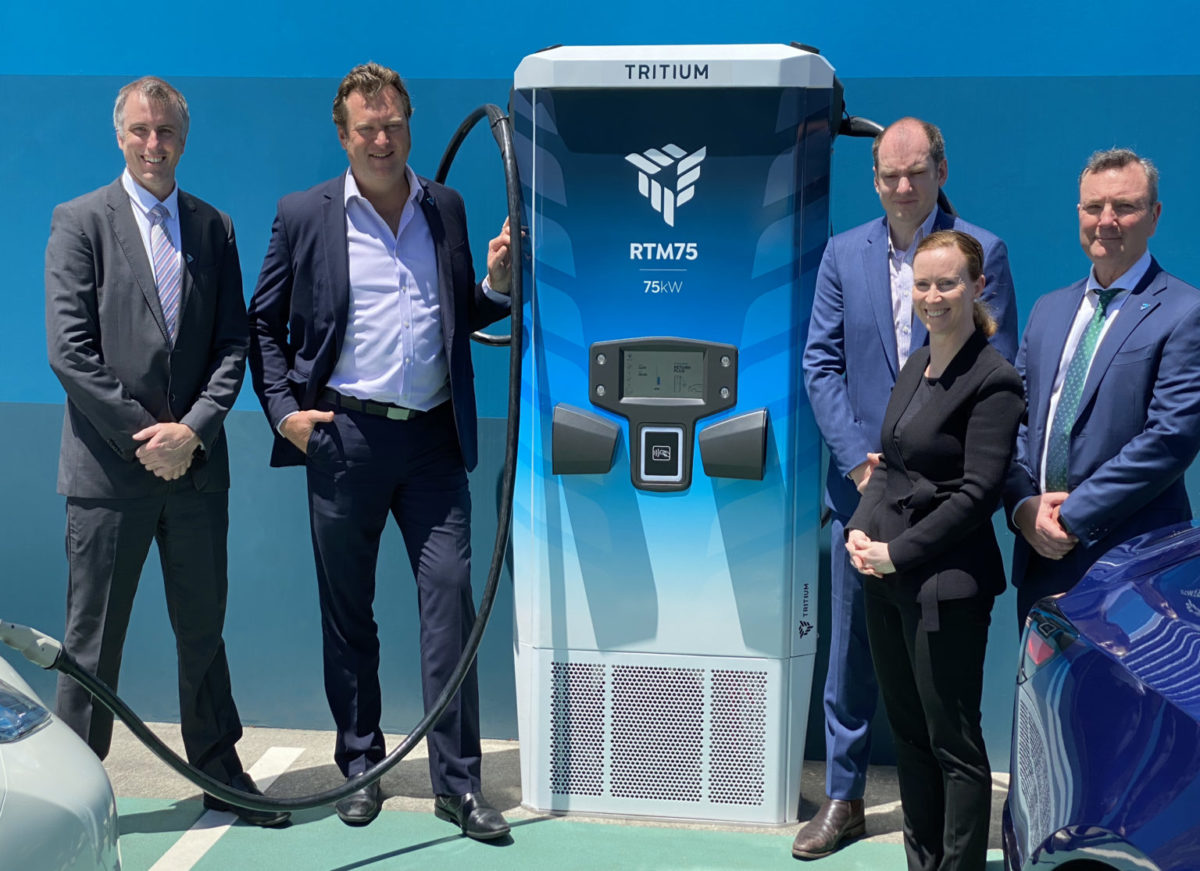Australia's Tritium has once again demonstrated why it is one of the pinups for the country's new manufacturing-led prosperity, with the launch of its world’s first scalable charging platform.
Modular scalable charging (MSC) is the key to unlocking the future-proofing of charger networks. With MSC, if you want to scale up your units, you don’t have to change out the main infrastructure, because MSC-designed chargers can scale up in 25 kW increments. This means that customers, network operators and governments will be able to shift, say, from 50 kW (fast or rapid chargers), up to 175 kW or 350 kW (high-power or ultra-fast chargers).
When pv magazine Australia spoke to Tritium CEO Jane Hunter in August, she noted that the then up-and-coming scalable solution “will allow our products to be future proofed in that, if you start at 25 and you want to add to the box, you don’t have to change out the main infrastructure.”
“This has been something the industry and our customers have asked for over the years and we are the first company in the world to deliver it,” said Hunter. “This solution is future-proofing governments and network operators across the globe something they have been crying out for. No longer is a charger just a charger; instead, it’s a first step to meet the needs of both today’s and tomorrow’s electric vehicles.”
Tritium has also unveiled MSC in tandem with its next-gen RTM75 DC Fast Charger, a unit that adds 75 km of range to an EV in 10 minutes of charging. Of course, the slim charger is also able to charge two vehicles simultaneously and is equipped with Plug and Charge technology.

“The electrification of transportation is at tipping point, so our customers want to know how they can easily extend their charging site capacity over the coming years,” said Tritium Chief Growth Officer David Finn. “They want no regrets and capital efficient scaling on their charging sites:”
This content is protected by copyright and may not be reused. If you want to cooperate with us and would like to reuse some of our content, please contact: editors@pv-magazine.com.




By submitting this form you agree to pv magazine using your data for the purposes of publishing your comment.
Your personal data will only be disclosed or otherwise transmitted to third parties for the purposes of spam filtering or if this is necessary for technical maintenance of the website. Any other transfer to third parties will not take place unless this is justified on the basis of applicable data protection regulations or if pv magazine is legally obliged to do so.
You may revoke this consent at any time with effect for the future, in which case your personal data will be deleted immediately. Otherwise, your data will be deleted if pv magazine has processed your request or the purpose of data storage is fulfilled.
Further information on data privacy can be found in our Data Protection Policy.